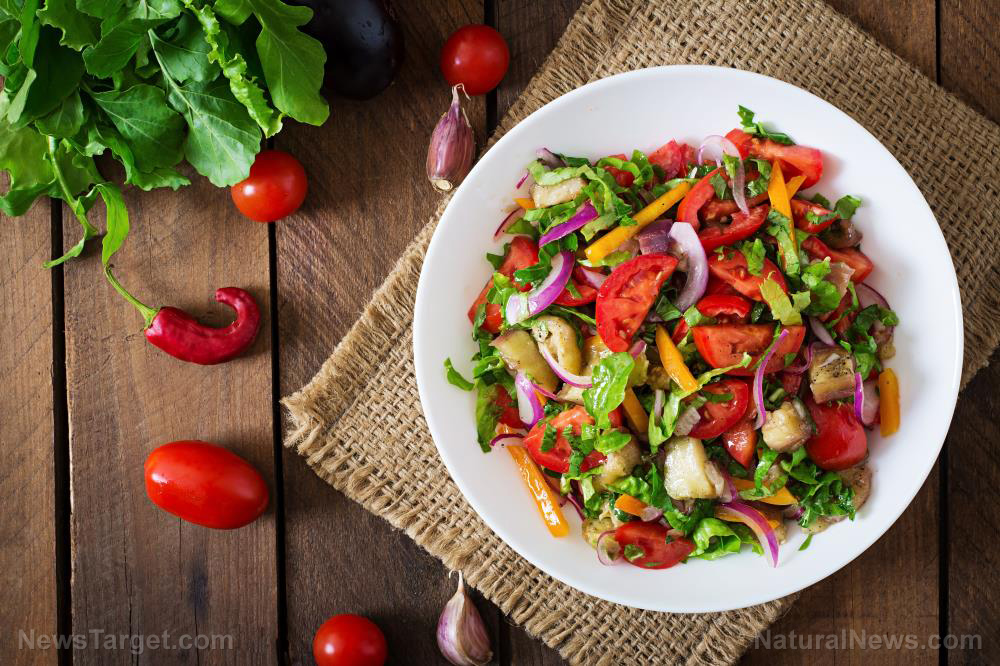
Advertisement
Here’s a good reason to become a vegetarian: Research shows that following a vegetarian diet may reduce your risk of getting a urinary tract infection (UTI).
Taiwanese researchers arrived at this finding after studying the diets of nearly 10,000 individuals between 2005 and 2014. During this period, they recorded 661 individual cases of UTI.
The participants filled out questionnaires that inquired about their eating habits. After analyzing the participants’ answers, the researchers found that a vegetarian diet was associated with a 16 percent lower risk of developing UTI.
They attributed this reduced risk to the fact that most UTIs are caused by the bacteria Escherichia coli, which are often found in meat like pork and poultry. A recent study also found that people on plant-based diets are less likely to suffer from food poisoning caused by E. coli, so the researchers say their findings add up.
UTIs are infections in any part of your urinary system, which consists of your kidneys, ureters, bladder and urethra. They are some of the most common infections in the world and affect more women than men.
In the study, vegetarian diets did not have a strong impact on men’s UTI risk. The researchers explained that this was because men are less likely to develop a UTI than women regardless of their diets.
More science-backed reasons to eat more vegetables
You can enjoy the following health benefits by eating more plant-based foods:
- Normal blood pressure – Several studies suggest that sticking with a plant-based diet may help reduce blood pressure. For example, a 2016 study found that vegetarians had a 34 percent lower risk of developing hypertension than non-vegetarians.
- Better heart health – Meat is high in saturated fat, which can raise your blood cholesterol and contribute to heart issues when eaten in excess. As such, going meat-free can help keep your heart healthy. A 2019 study also found that eating a plant-based diet can help lower your risk of cardiovascular disease by 16 percent and your risk of death from heart disease by 31 percent.
- Lower risk of Type 2 diabetes – A 2016 study found that eating a plant-based diet rich in high-quality plant foods can reduce your risk of Type 2 diabetes by 34 percent. This risk reduction is likely because vegetables, fruits and other plant-based foods have lower amounts of saturated fat than meat. High consumption of saturated fat can make you prone to Type 2 diabetes.
- Weight loss – Whole grains and vegetables are digested by your body more slowly than meat, while fruits are chock-full of fiber. These can help prolong feelings of fullness and promote satiety, according to a 2016 study.
- Longevity – A lower risk of life-threatening diseases means you’re less likely to die prematurely. A study found that eating a plant-based diet can lower your risk of dying early due to various causes by 25 percent.
- Reduced cancer risk – The American Institute for Cancer Research says that the best way to get anti-cancer nutrients like antioxidants is to eat a diet rich in fruits, vegetables, whole grains, beans, nuts, seeds and some animal foods.
- Lower cholesterol – A review found that shifting to a plant-based diet can lower bad cholesterol by up to 15 percent while following a vegan diet can lower bad cholesterol by as much as 25 percent.
- Decreased risk of stroke – Your risk of stroke increases when you are overweight or have high blood pressure, high cholesterol, diabetes or heart disease. Following a plant-based diet can help wipe out those risk factors.
- Healthy brain – Fruits and vegetables are rich in antioxidant polyphenols, which research shows can protect against age-related cognitive decline and Alzheimer’s disease. A review also found that eating an extra 100 grams of fruits and veggies a day can reduce your risk of cognitive impairment and dementia by up to 13 percent.
Types of vegetarian diet
Vegetarian diets vary depending on what foods they include and exclude. Check out the following variations of a vegetarian diet:
- Lacto-vegetarian diets exclude meat, poultry, eggs and fish, as well as any products that contain them. Dairy products like milk, yogurt and cheese are permitted.
- Ovo-vegetarian diets exclude meat, poultry, seafood and dairy products but allow eggs.
- Lacto-ovo vegetarian diets exclude meat, fish and poultry but allow eggs and dairy products.
- Pescatarian diets exclude meat, poultry, eggs and dairy but allow fish.
- Vegan diets exclude meat, poultry, eggs, fish and dairy products, as well as any food that contains them.
Becoming a vegetarian may seem hard because it requires you to quit eating meat. But the thing is, you don’t have to cut meat all at once when starting a vegetarian diet. Go slowly and eliminate one type of meat at a time.
For example, you can start by removing beef from your diet. Don’t eat it for a month then eliminate another type of meat every month. Eventually, you’ll get rid of all meat and other forbidden foods in your diet without it feeling unmanageable.
Eating a vegetarian diet is an amazing way to stay healthy. It can help ward off infections, diabetes, cancer, heart disease, high cholesterol and more. Start a vegetarian diet to enjoy these benefits.
Sources:
Advertisements







